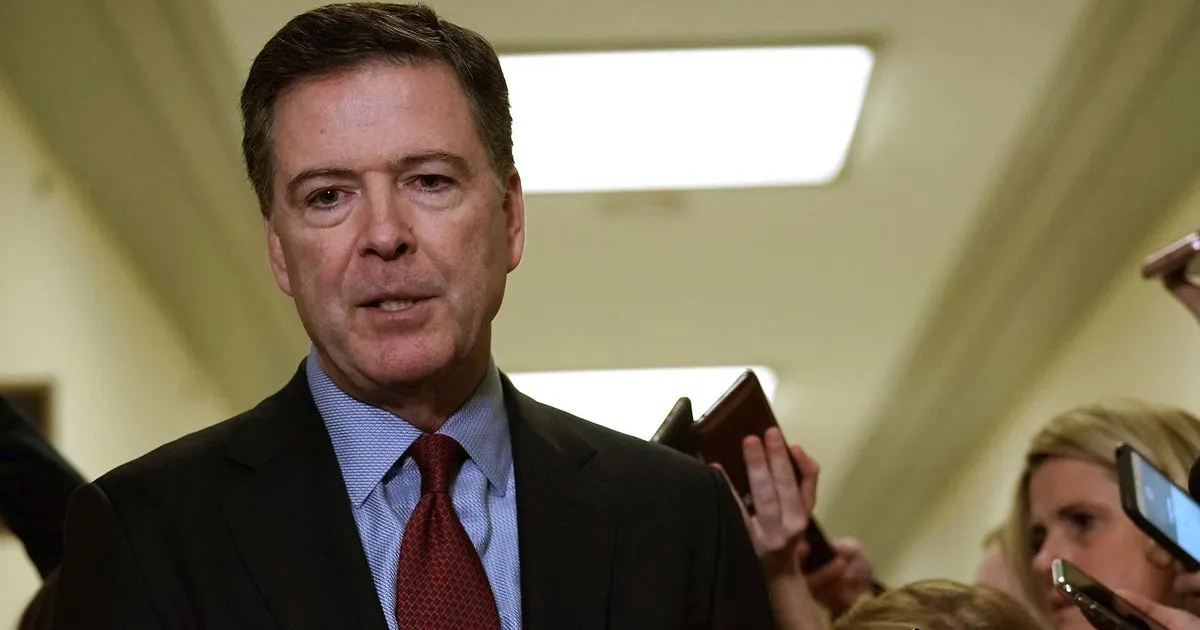
On Monday, the legal team representing former FBI Director James Comey filed a series of motions aimed at having the two-count federal indictment against him dismissed. The defense argues that the charges stem from President Trump's personal animus towards Comey rather than any legitimate legal basis. Attorney Patrick Fitzgerald, who is leading Comey's defense, asserts that the case is a product of a vindictive and unlawful prosecution.
Comey's attorneys contend that the indictment is rooted in an egregious abuse of power, citing multiple constitutional violations. They claim that President Trump directed prosecutors to charge Comey out of personal spite, primarily because of Comey’s consistent criticism of the President. The indictment follows years of tension, particularly after Trump dismissed Comey from his position as FBI Director in 2017.
Fitzgerald had previously hinted at these motions during Comey’s arraignment earlier this month, and he plans to submit additional filings to challenge the charges in the weeks to come. A hearing on the initial set of motions has been scheduled for November 19 in Alexandria, Virginia.
The defense argues that even if the court does not dismiss the charges for vindictive prosecution, there are sufficient grounds for a thorough examination of the prosecutorial decision-making process that led to this flawed indictment. Comey's legal team insists that without a dismissal with prejudice, he risks facing an ongoing state of vindictive prosecution.
In a separate motion, Comey’s attorneys are questioning the legitimacy of Lindsey Halligan’s appointment as interim U.S. Attorney. They argue that Halligan, who signed the indictment, was defectively appointed, claiming that no properly authorized official from the executive branch secured the indictment against Comey. They assert that the circumstances surrounding Halligan’s appointment violate statutory provisions and highlight a politically motivated effort to indict Comey just before the statute of limitations was about to expire.
Complicating the matter further, federal prosecutors have indicated plans to seek the disqualification of Fitzgerald due to his alleged involvement in Comey's earlier actions, particularly regarding the disclosure of classified information following his firing in 2017. Prosecutors Tyler Lemons and Gabriel Diaz have raised concerns about potential conflicts of interest that may arise from Fitzgerald's representation of Comey.
In their filing, prosecutors noted that Comey shared four memos with Fitzgerald shortly after his dismissal, which Fitzgerald then forwarded to other lawyers. They are requesting that a filter team be established to review evidence that may contain privileged communications, thereby ensuring that any protected information isn't disclosed improperly during the trial.
Comey, who was indicted in September on charges of making false statements to Congress and obstruction of justice, pleaded not guilty at his arraignment. The indictment is particularly significant given Comey’s contentious history with President Trump, who has vocally criticized him for his role in the FBI's investigation into Russian interference in the 2016 election. Trump's public frustration regarding the lack of criminal charges against Comey has been noted as a potential motivator for the indictment.
The legal landscape surrounding Comey’s indictment is further complicated by recent rulings against the appointments of U.S. Attorneys made by President Trump in other states, suggesting a pattern of challenges to such appointments. Fitzgerald's motion references these cases as part of a broader strategy to ensure that the authority of Congress in judicial nominations and appointments is respected.
While proving claims of selective or vindictive prosecution is often challenging, former prosecutors believe that the context of Comey’s case could bolster his defense. Selective prosecution entails a discriminatory motive, while vindictive prosecution suggests punitive actions against a defendant for exercising legal rights. Fitzgerald has indicated that more motions will be filed by November 20, including allegations of grand jury abuse and misconduct by the Justice Department.
The unfolding legal battle surrounding James Comey highlights significant issues of prosecutorial conduct, political motivations, and constitutional rights, setting the stage for a potentially historic legal showdown in the coming months.